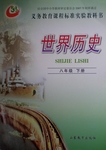题目内容
Girls can easily get sad. If your friend is feeling blue and calls you, what will you do? Here are some tips on how you can make her smile again.
Listen to her. When people feel sad, they often have the feeling of needing to be heard. So, listen carefully to what she is saying and do nothing else. Your friend will surely thank you for being the shoulder she can cry on.
Once you are done with listening, you can offer some advice or remain silent and let her feel everything and let it all out by crying. As a friend, you might think you should give her some advice. But if you have no idea about what to say, just remain silent and be there for her.
In order to be able to help your friend in need, don’t be sad for yourself. How can you help your friend when you are also feeling down?
A hug can make a difference in the word. It makes you feel warm and special. A hug makes you feel safe. So give your friend a hug when she needs it the most.
Spend more time with your friend who wants to be happy. Do things together like washing dishes, cleaning, or going out for fun. The more time you spend together, the stronger your friendship will become.
Sometimes, it is much better that you avoid a crying friend in your life. But by doing so, you are also keeping your friend at a distance and will make her wonder if you are her true friend. If you are there when she needs you, your friendship will be much stronger.
小题1:The writer wrote this passage mainly to tell us_______.
小题2:According to Paragraph 2, when a female friend is sad, what should we do?
小题3:We can learn from the passage that______.
E. Hugging a sad friend can make you feel warm and special.
F. Your sad friend may feel much better if you also sad.
G. It’s not a good idea to be silent facing a sad friend.
H. Giving a hug to a sad friend is very helpful.
小题4:In paragraph 6, the writer mainly suggests that we_____.
I. spend more time with your friend.
J. help our friends with their housework
K. spend time with our friends everyday
L. ask our friends to take part in activities
Listen to her. When people feel sad, they often have the feeling of needing to be heard. So, listen carefully to what she is saying and do nothing else. Your friend will surely thank you for being the shoulder she can cry on.
Once you are done with listening, you can offer some advice or remain silent and let her feel everything and let it all out by crying. As a friend, you might think you should give her some advice. But if you have no idea about what to say, just remain silent and be there for her.
In order to be able to help your friend in need, don’t be sad for yourself. How can you help your friend when you are also feeling down?
A hug can make a difference in the word. It makes you feel warm and special. A hug makes you feel safe. So give your friend a hug when she needs it the most.
Spend more time with your friend who wants to be happy. Do things together like washing dishes, cleaning, or going out for fun. The more time you spend together, the stronger your friendship will become.
Sometimes, it is much better that you avoid a crying friend in your life. But by doing so, you are also keeping your friend at a distance and will make her wonder if you are her true friend. If you are there when she needs you, your friendship will be much stronger.
小题1:The writer wrote this passage mainly to tell us_______.
| A.why girls can easily get sad. |
| B.what to do when we are sad. |
| C.how to make new friends with girls. |
| D.how to make a sad female friend happy again. |
| A.We should ask her why she feels sad. |
| B.We should say something nice to her. |
| C.We should spend time listening to her. |
| D.We should give her some good advice. |
E. Hugging a sad friend can make you feel warm and special.
F. Your sad friend may feel much better if you also sad.
G. It’s not a good idea to be silent facing a sad friend.
H. Giving a hug to a sad friend is very helpful.
小题4:In paragraph 6, the writer mainly suggests that we_____.
I. spend more time with your friend.
J. help our friends with their housework
K. spend time with our friends everyday
L. ask our friends to take part in activities
小题1:D
小题2:C
小题3:D
小题4:A
文章主要告诉我们应该如何来帮助受到伤害的朋友,告诉了我们几个不同的方法。
小题1:D 细节题。根据第一段最后一句Here are some tips on how you can make her smile again.说明D正确。
小题2:C 细节题。根据第二段第二行listen carefully to what she is saying and do nothing else说明要学会倾听朋友。故C正确。
小题3:D 推理题。根据第五段第一行A hug can make a difference in the word. It makes you feel warm and special说明拥抱意义重大,让人感觉温暖,所以给朋友一个拥抱非常有帮助,故D正确。
小题4:A 段落大意题。根据本段主题句Spend more time with your friend who wants to be happy说明A正确。
小题1:D 细节题。根据第一段最后一句Here are some tips on how you can make her smile again.说明D正确。
小题2:C 细节题。根据第二段第二行listen carefully to what she is saying and do nothing else说明要学会倾听朋友。故C正确。
小题3:D 推理题。根据第五段第一行A hug can make a difference in the word. It makes you feel warm and special说明拥抱意义重大,让人感觉温暖,所以给朋友一个拥抱非常有帮助,故D正确。
小题4:A 段落大意题。根据本段主题句Spend more time with your friend who wants to be happy说明A正确。

练习册系列答案
 探究与巩固河南科学技术出版社系列答案
探究与巩固河南科学技术出版社系列答案
相关题目